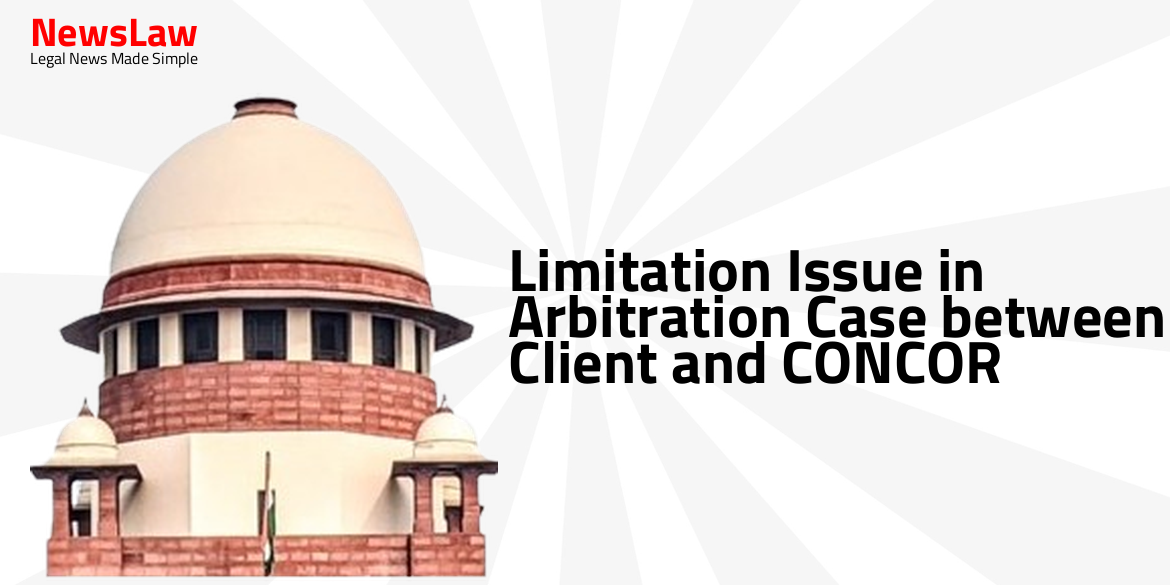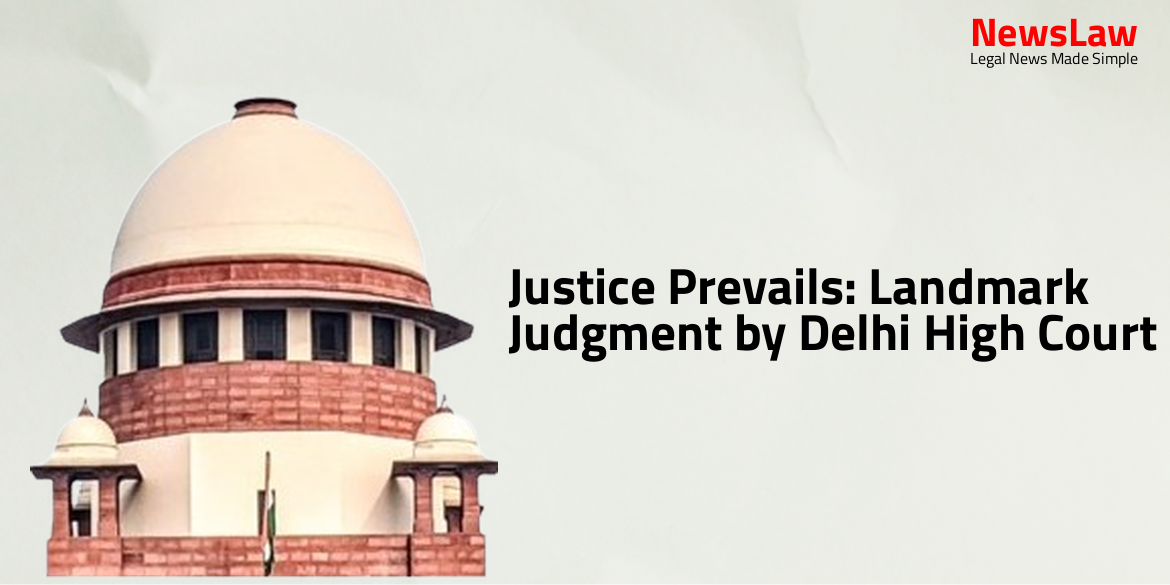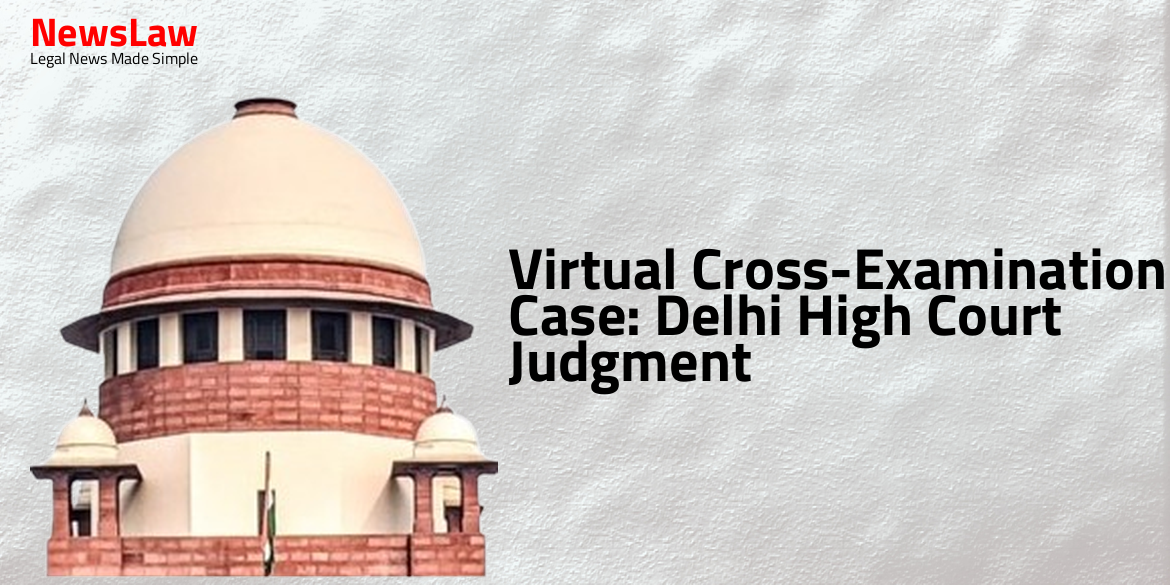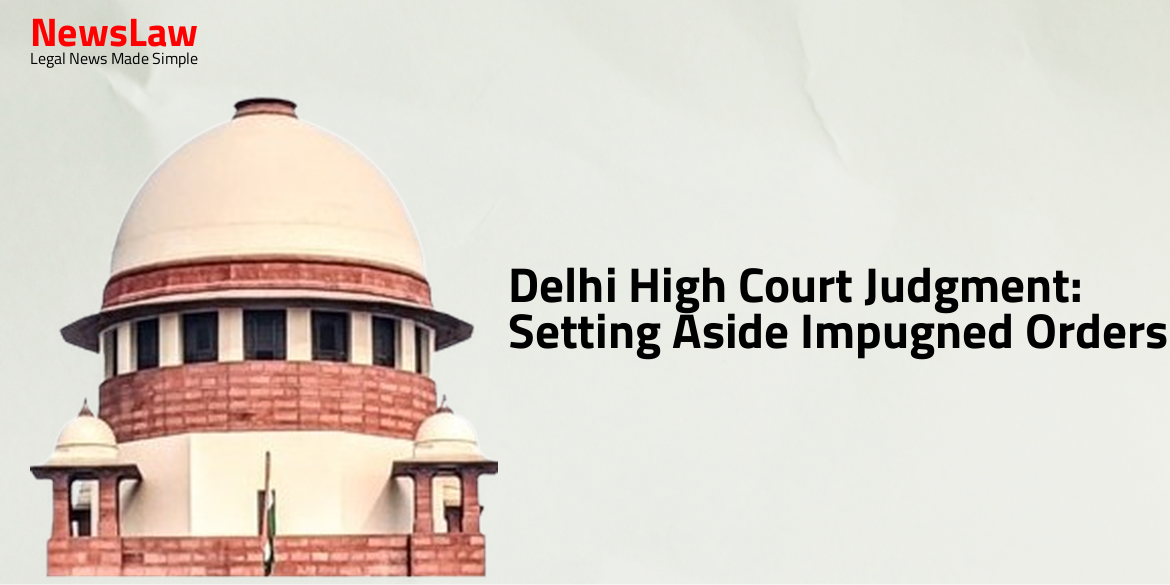Discover the complexities of the limitation issue in an arbitration case between Client and CONCOR. The case revolves around a dispute arising from deductions made by CONCOR in 2016, deemed time-barred by the respondent. The issue of whether the petition should be dismissed on the ground of limitation is at the forefront of this legal battle. Stay informed on the legal intricacies surrounding arbitration law in this compelling case.
Arguments
- The petitioner invoked arbitration clause ARB.P. 512/2023 on 12.11.2022, raising a dispute of Rs. 7,56,17,174/- as per Clause-21.1 of the agreement.
- The petitioner demanded Rs. 6,67,33,174/- from the respondent due to various reasons including costs incurred for purchasing VMTs for trailers, losses due to reduction in the number of trailers, and salary costs for idle drivers.
- The dispute originated when the respondent started deducting unjustified amounts from vendor bills due to alleged delays in VMT equipment installation, totaling Rs. 88,84,000/-.
- The respondent extended the contract for one year, instructed the removal of VMTs from 50 trailers, reduced the number of trailers by 10, and reduced the monthly hiring rates.
- VMTs were installed in the trailers with suitable compatibility with the respondent’s CCLS system after delays attributed to changes in the company’s system.
- Disputes were officially communicated to the respondent via emails on multiple occasions.
- The agreement between the parties entailed the installation of GPS and VMTs in trailers compatible with the respondent’s CCLS System.
- Respondent has denied all the averments and raised an objection that the petition is barred by limitation.
- Respondent alleges that the petitioner has not come to court with clean hands and issued a notice dated 12.11.2022 to cover up the lost period of limitation.
- Learned counsel for Respondent relies on case laws and states that once the time has begun to run, no subsequent disability can stop it.
- Counsel argues that Article 137 of the Limitation Act applies, and the petition is without any cause of action.
- The arbitration clause in the agreement specifies that Respondent shall appoint a Sole Arbitrator, which is not permissible as per a Supreme Court judgment.
- The question at hand is whether the petition should be dismissed on the ground of limitation, which is a mixed question of law.
- Counsel cites cases where the issue of limitation was decided by the arbitrator, indicating that it should be decided by the arbitrator in this case as well.
- Claim of the petitioner is considered stale, and it cannot be revived through the present petition.
Analysis
- An application under Section 11 of the Act 1996 must be made within 3 years from when the right to apply first accrues.
- The VMTs were purchased on a finance basis with payments being made from CONCOR bills.
- Deductions allegedly made in 2016 are time-barred.
- If a claim is found to be time-barred, it is a jurisdictional issue and determined on the merits.
- Limitation is a mixed question of fact and law to be decided by the arbitrator, unless clearly time-barred.
- The starting point of limitation under Article 137 is when ‘the right to apply arises’.
- The expression ‘the right to apply’ should be interpreted based on each case’s circumstances.
- Claims must be raised when the cause for arbitration arises, akin to a cause of action in civil cases.
- The period of limitation under Article 137 is three years from when the right to apply accrues.
- A clear and unequivocal denial of the right by the respondent triggers the right to apply.
- Allowing a stale claim to be raised in arbitration is not permissible under Article 137 of the Act 1963.
- The claim becomes hopelessly barred if left unclaimed for a long time, as held by the Apex Court.
- The cause of arbitration arises when the claimant acquires the right to require arbitration.
- Article 137 of the Schedule to the Act 1963 applies for jurisdictional issues in arbitration cases.
- The determination of a cause of action is crucial for calculating the limitation period for bringing an action.
- The cause of action arises when the aggrieved party has the right to seek relief from the proper tribunals.
- The period of limitation for commencing arbitration runs from the date the cause of arbitration accrued.
- The true test to determine when a cause of action has accrued is when the plaintiff could first maintain the action successfully.
- The claims raised being time-barred is distinct from the application for appointment of an arbitrator being time-barred.
- The period of limitation for arbitration starts from when the cause of action would have accrued if there was no arbitration clause.
- Every arbitration must be commenced within the prescribed period as per the Law of Arbitration.
- The claim in arbitration should not be put forward after the expiration of a specified number of years from when the claim accrues.
- Under Section 16(5), the tribunal must decide on a plea and if rejected, arbitral proceedings continue.
- The tribunal then proceeds to make an award.
- Section 16(6) allows a party aggrieved by the arbitral award to challenge it under Section 34.
- VMTs installed in the trailers are designed and developed specifically for CONCOR’s compatibility requirements
- VMTs cannot be used at any other company’s project
Decision
- Dispute under the agreement referred to Sole Arbitrator in accordance with Section 12 of the Act
- Arbitration to be conducted under the Delhi International Arbitration Centre (DIAC)
- Arbitrator appointed as Hon’ble Dr. Justice Satish Chandra
- Remuneration of Arbitrator to be as per DIAC Fee Schedule or agreed upon by parties
- Arbitration demand of Rs. 6,67,33,174 raised by Client against CONCOR
- Breakdown of the demand: Rs. 60,54,952 for VMTs, Rs. 4,57,80,222 for trailer reduction loss, Rs. 1,48,98,000 for idle driver costs
- Only dispute related to the claim in para-10 to be referred to Arbitrator
- All rights and contentions of parties, including arbitrability, preliminary objections, and claims on merits, left for Arbitrator’s adjudication
Case Title: SAHAMAL SINGH Vs. CONTAINER CORPORATION OF INDIA LIMITED (2024:DHC:4110)
Case Number: ARB.P.-512/2023



